Yael Bartana
Summer Camp / Awodah
21.9. —
16.10.2011
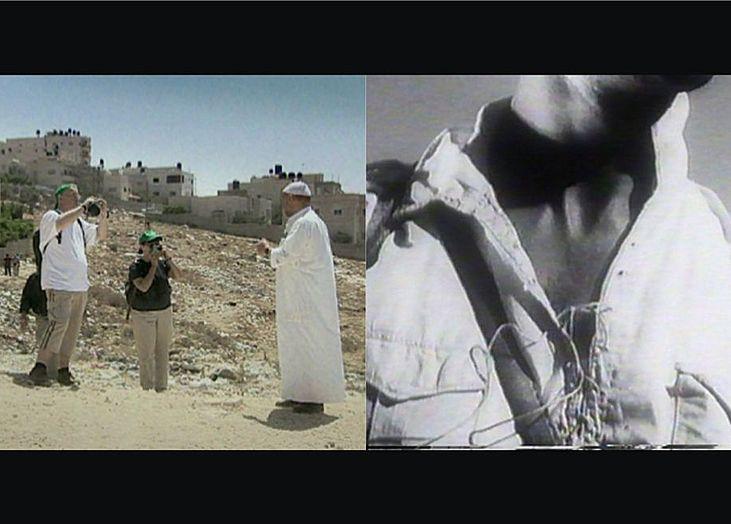
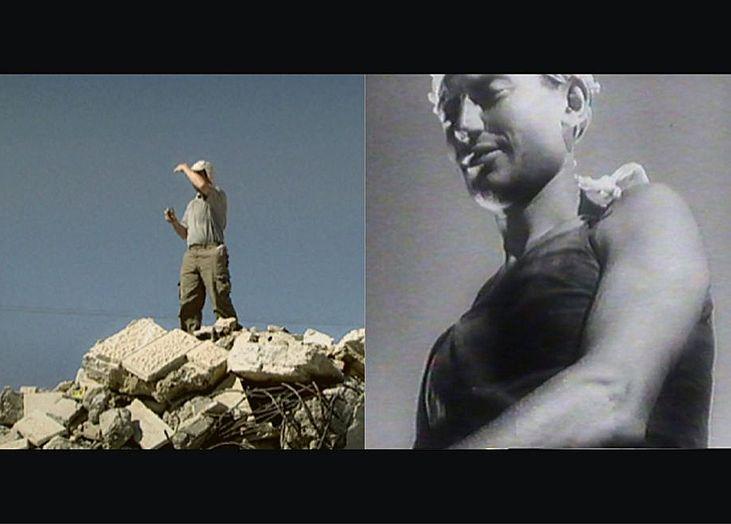
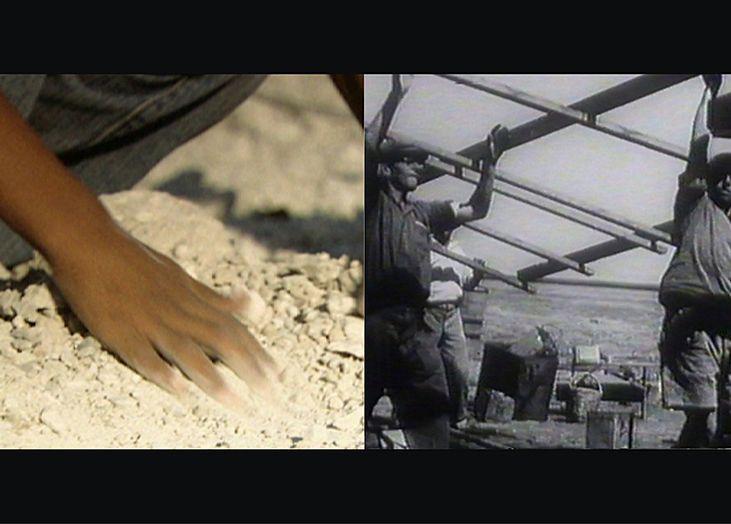
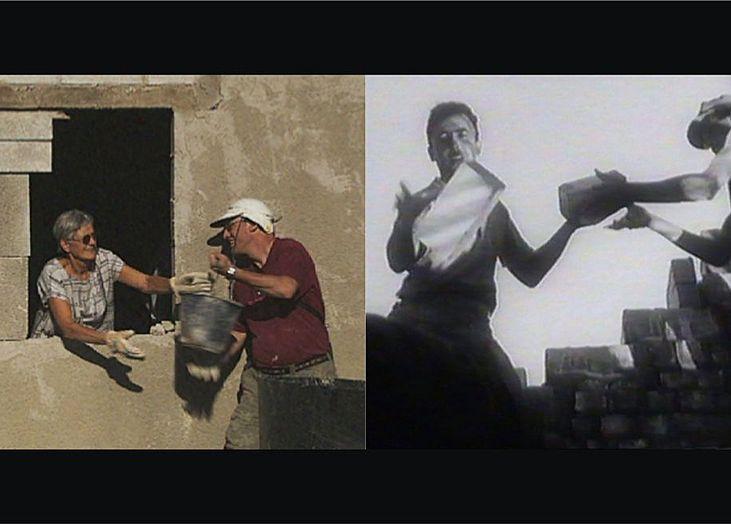
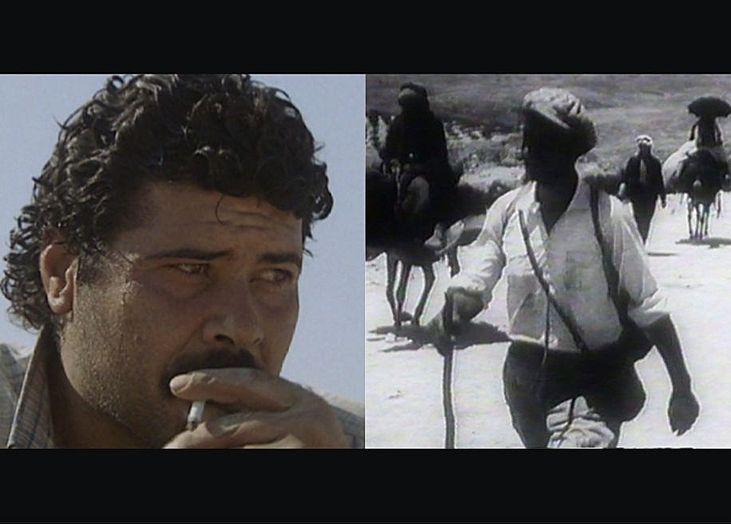
Yael Bartana is one of the most well known Israeli artists today. Her current film trilogy …and Europe will be stunned is currently on view at the Polish National Pavilion at the Venice Biennale. In her video installation Summer Camp and Awodah (2007) the artist draws on the actions of the Israeli Committee Against House Demolition.
Among other things, it organises the reconstruction of Palestinian homes that were destroyed by Israeli attacks. In the film Summer Camp the artist shows how tourists, in typical Western dress with baseball cap and jeans, meet a Palestinian who awaits them in a friendly manner. In slowly evolving sequences, one eventually learns that the Western tourists are rebuilding a house stone by stone. Their politically correct summer employment is reminiscent of boy scout camp activities, but this time for politically oriented grown-ups who want to contribute something to improve the world by their work. At the same time, they and the viewer become aware that their activity is like that of Sisyphus — well knowing that an already destroyed house rebuilt at the same spot can again become a target of destruction in the ongoing conflict between Palestine and Israel. The artist complements the Summer Camp with Awodah, an excerpt from Helmar Lerski’s film by the same name from 1935. Lerski's film depicts the everyday life of Jews and Arabs in the British-mandated territory of Palestine in the 1930s. It focuses on the water supply with modern technical methods and the construction of roads and houses. The workers are often shown in close-ups, with glistening beads of sweat and dirt stains. The music score by Paul Dessau produced for Lerski's film is used in a synchronised manner for both films. Yael Bartana makes use of the language and music of the propaganda years of the 1930s and thereby makes a connection to Israel's Zionist development and expansion plans.
Text by Sabine Schaschl